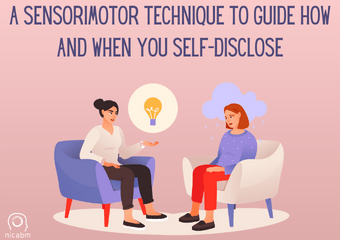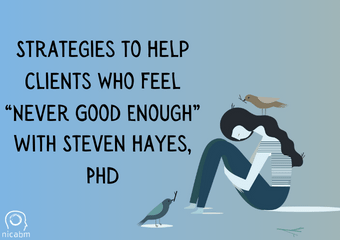When it comes to confronting a client’s pattern of narcissism or grandiosity, it’s safe to say you might meet with some pushback along the way. So to up your chances of success (and also mitigate the risk of damage to the therapeutic relationship), it can be helpful to pad your treatment plan with a few […]
A Sensorimotor Technique to Guide How and When You Self-Disclose
When it comes to self-disclosure in our clinical work, it can be critical to weigh very carefully just how and when we use it . . . . . . especially in cases where a client relays an experience that bumps up against a painful or overwhelming experience, we may have had ourselves. But according […]
Strategies to Help Clients Who Feel “Never Good Enough” – with Steven Hayes, PhD
Ever notice how some of your most highly skilled, successful clients often find themselves burnt out and unsatisfied?That no matter how much they achieve, feelings of inadequacy leave them believing that they’re just “never good enough”? To help them move out of this belief, one critical first step can be getting them to identify what’s […]
Marsha Linehan, PhD shares 2 Strategies for Disarming a Client’s Anger
When clients struggle to control their anger, it can alienate their family, friends, co-workers, and perhaps even you, as the clinician. So how do you get your client to recognize that their anger is an issue . . . . . . without making them angry at you (and stalling therapeutic progress even further)? In […]
A Parts Approach for Restoring Pleasure and Vitality After Trauma with Janina Fisher, PhD
After trauma, there’s one (critical) stage of healing that can often feel elusive. You see, even when a client has made significant progress in therapy, they often still report feeling numb, and not fully present in their own life. That’s why interventions designed to help clients reconnect with their sense of vitality and pleasure can […]




